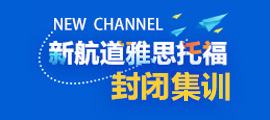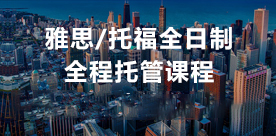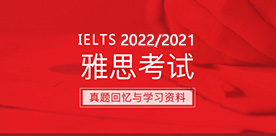劍橋雅思4Test2閱讀passage2:澳大利亞的另類療法
2017/3/30 11:51:20來源:新航道作者:新航道
摘要:劍橋雅思系列是同學們在備考中必備的教材之一,所以同學們在備考的時候是要準備一些這方面的資料。小編接著介紹劍橋雅思4Test2閱讀passage2原文+譯文:澳大利亞的另類療法。
劍橋雅思系列是同學們在備考中必備的教材之一,所以同學們在備考的時候是要準備一些這方面的資料。新航道雅思小編上次分享了:劍橋雅思4Test2閱讀passage1原文+譯文:語言的消失。小編接著介紹劍橋雅思4Test2閱讀passage2原文+譯文:澳大利亞的另類療法。
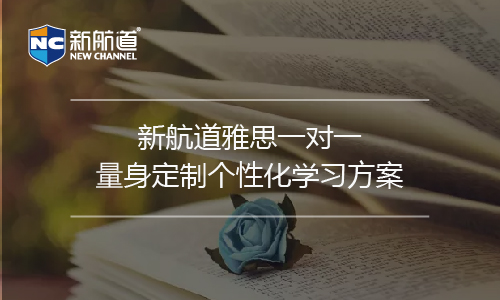
劍橋雅思4Test2閱讀passage2原文+譯文:澳大利亞的另類療法
ALTERNATIVE MEDICINE IN AUSTRALIA
澳大利亞的另類療法
The first students to study alternative medicine at university level in Australia began their four-year, full-time course at the University of Technology, Sydney, in early 1994. Their course covered, among other therapies, acupuncture. The theory they learnt is based on the traditional Chinese explanation of this ancient healing art: that it can regulate the flow of ‘Qi’ or energy through pathways in the body. This course reflects how far some alternative therapies have come in their struggle for acceptance by the medical establishment.
1994年初,澳大利亞第一批另類療法學生在悉尼科技大學開始了他們為期四年的全職課程。除了學習其他一些療法之外,他們的課程還包括針灸術,他們所學的理論基于中國古代對這門古老療法的解釋:那就是針灸可以調節“氣”或能量在人體神經系統中的流通。這門課程足以反映另類療法在爭取醫療機構認同的斗爭中所取得的成果。
Australia has been unusual in the Western world in having a very conservative attitude to natural or alternative therapies, according to Dr Paul Laver, a lecturer in Public Health at the University of Sydney. ‘We’ve had a tradition of doctors being fairly powerful and I guess they are pretty loath to allow any pretenders to their position to come into it.’ In many other industrialised countries, orthodox and alternative medicine have worked ‘hand in glove’ for years. In Europe, only orthodox doctors can prescribe herbal medicine. In Germany, plant remedies account for 10% of the national turnover of pharmaceuticals. Americans made more visits to alternative therapists than to orthodox doctors in 1990, and each year they spend about $US 12 billion on therapies that have not been scientifically tested.
由于對自然或另類療法所采取的極端保守態度,澳大利亞在西方國家中獨樹一幟。悉尼大學公共健康系博士Paul Laver評價道:“我們有個傳統,醫生是相當權威的,我猜他們很不愿意讓那些覬覦他們位置的冒牌貨得逞。”在其他許多工業國家里,正統醫生和另類醫師早已親密無間地合作多年了。在歐洲,只有正統醫生才可以開草藥。在德國,草藥占了藥品銷售額的10%。1990年美國人去看另類療法醫師的次數比去看傳統醫生的次數還多,而每年,他們花在未經科學測試的療法上的錢竟髙達約120億美元。
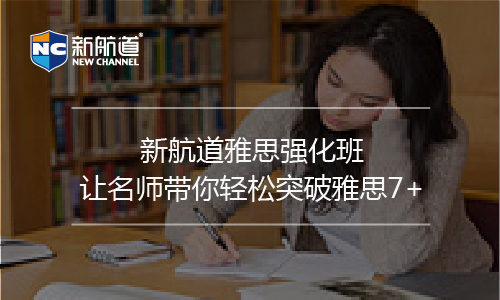
Disenchantment with orthodox medicine has seen the popularity of alternative therapies in Australia climb steadily during the past 20 years. In a 1983 national health survey, 1.9% of people said they had contacted a chiropractor, naturopath, osteopath, acupuncturist or herbalist in the two weeks prior to the survey. By 1990, this figure had risen to 2.6% of the population. The 550,000 consultations with alternative therapists reported in the 1990 survey represented about an eighth of the total number of consultations with medically qualified personnel covered by the survey, according to Dr Laver and colleagues writing in the Australian Journal of Public Health in 1993. ‘A better educated and less accepting public has become disillusioned with the experts in general, and increasingly sceptical about science and empirically based knowledge,’ they said. ‘The high standing of professionals, including doctors, has been eroded as a consequence.’
在過去20年中,由于人們對傳統醫療不再迷信,另類療法在澳大利亞慢慢流行起來。在1983年進行的全國健康調査中,有1.9%的人說此前兩周內曾經去看過按摩師、理療家、整骨醫師、針灸醫生或草藥醫生。到了1990年,這個數字已經攀升到澳大利亞人口的2.6%。根據Laver博士和他的同事們刊登在1993年《澳大利亞公共健康期刊》上的報道:在1990年調査中,另類療法醫生進行了55萬次診斷,這個數字幾乎占了調查中所有醫療診斷的八分之一。“總體而言,受過良好教育又不那么輕信的民眾已經對專家失望了,而且對科學和經驗主義知識已經越來越懷疑了,”博士們說,“結果,包括醫生在內的專業人士的崇高地位也就大打折扣。”
Rather than resisting or criticising this trend, increasing numbers of Australian doctors, particularly younger ones, are forming group practices with alternative therapists or taking courses themselves, particularly in acupuncture and herbalism. Part of the incentive was financial, Dr Laver said. ‘The bottom line is that most general practitioners are business people. If they see potential clientele going elsewhere, they might want to be able to offer a similar service.’
越來越多的澳大利亞醫生,特別是那些年輕一些的醫師,非但沒有抵制或是批判這樣一個潮流,反而開始與另類療法醫師聯合開業,或是干脆自己去學習相關課程,尤其是針灸和草藥醫學。Laver博士說,部分動機當然是出于經濟考慮。“關鍵在于大多數全科醫生都是商人。如果他們看到潛在的客戶去別處看病,他們就想也要能提供類似的服務。”
In 1993, Dr Laver and his colleagues published a survey of 289 Sydney people who attended eight alternative therapists’ practices in Sydney. These practices offered a wide range of alternative therapies from 25 therapists. Those surveyed had experienced chronic illnesses, for which orthodox medicine had been able to provide little relief. They commented that they liked the holistic approach of their alternative therapists and the friendly, concerned and detailed attention they had received. The cold, impersonal manner of orthodox doctors featured in the survey. An increasing exodus from their clinics, coupled with this and a number of other relevant surveys carried out in Australia, all pointing to orthodox doctors’ inadequacies, have led mainstream doctors themselves to begin to admit they could learn from the personal style of alternative therapists. Dr. Patrick Store, President of the Royal College of General Practitioners, concurs that orthodox doctors could learn a lot about bedside manner and advising patients on preventative health from alternative therapists.
1993年,Laver博士和他的同事們發表了一項調查報告,報告包括289名曾到8家另類療法診所尋求治療的悉尼市民。這些診所共有25名另類治療師,提供相當廣泛的另類療法。接受調查的人都患有慢性疾病,正統療法治療對這些疾病的效果微乎其微。病人們評價說他們喜歡另類療法醫師所采取的全面的治療手段,也喜歡那里友善熱情、細致入微的關懷。這次調査揭示了正統醫生的冷漠態度。病人從診所中大批離去,加上其他一些相關的全國性調查的結果,矛頭直指正統醫生的不足之處,這就使得他們開始承認應該學習一下另類療法醫師的親切態度。就連皇家醫學院的Patrik Stone博士也贊同說,正統醫生應該多學習另類療法醫師對待病人的態度,還有他們給病人的預防建議。
According to the Australian Journal of Public Health, 18% of patients visiting alternative therapists do so because they suffer from musculo-skeletal complaints; 12% suffer from digestive problems, which is only 1% more than those suffering from emotional problems. Those suffering from respiratory complaints represent 7% of their patients, and candida sufferers represent an equal percentage. Headache sufferers and those complaining of general ill health represent 6% and 5% of patients respectively, and a further 4% see therapists for general health maintenance.
根據《澳大利亞公共健康期刊》,18%的病人因為得了肌肉骨骼方面的疾病而去看另類醫師;12%的人則是因為消化系統疾病,這個數字只比因為感情問題而去就醫的人多1個百分點。呼吸系統疾病患者和假絲酵母過敏者各占7%。頭疼就醫者和整體感覺身體不適而就醫者分別占到了6%和5%,還有4%的人看醫生只是為了保持身體健康。
The survey suggested that complementary medicine is probably a better term than alternative medicine. Alternative medicine appears to be an adjunct, sought in times of disenchantment when conventional medicine seems not to offer the answer.
這項調查表明,與另類療法這個字眼相比,互補療法是個更為合適的稱呼。前者聽起來仿佛是正統療法的附庸,一種只有當你對傳統療法的無能為力失望后,才會去追尋的東西。
更多劍橋雅思真題系列下載:
劍橋雅思真題11PDF+音頻下載
劍橋雅思10真題下載
劍橋雅思真題9PDF+聽力MP3下載
劍橋雅思真題8PDF+聽力MP3下載
劍橋雅思真題7PDF+聽力MP3下載
劍橋雅思真題5PDF+聽力MP3下載
劍橋雅思4PDF文本+聽力MP3下載
免費獲取資料
熱報課程
- 雅思課程
| 班級名稱 | 班號 | 開課時間 | 人數 | 學費 | 報名 |
|---|
免責聲明
1、如轉載本網原創文章,情表明出處
2、本網轉載媒體稿件旨在傳播更多有益信息,并不代表同意該觀點,本網不承擔稿件侵權行為的連帶責任;
3、如本網轉載稿、資料分享涉及版權等問題,請作者見稿后速與新航道聯系(電話:021-64380066),我們會第一時間刪除。
全真模擬測試
雅思動態

雅思高級詞匯作文模板范文
制作:每每


